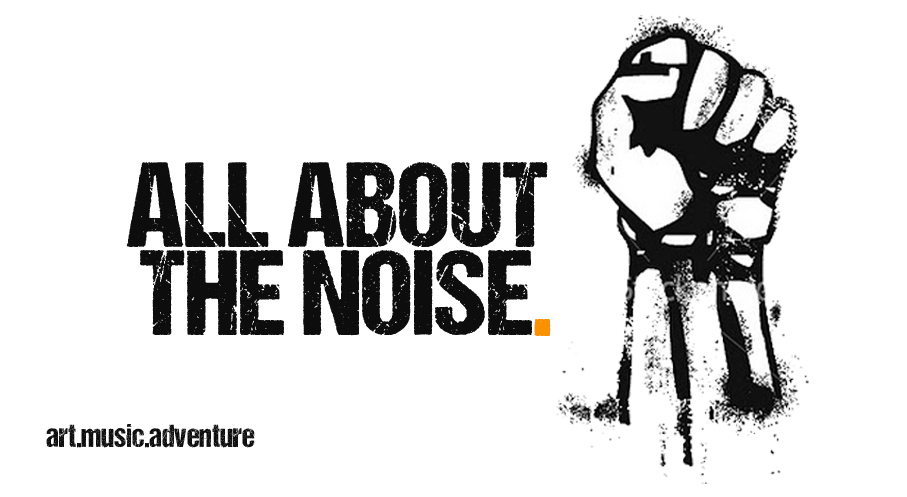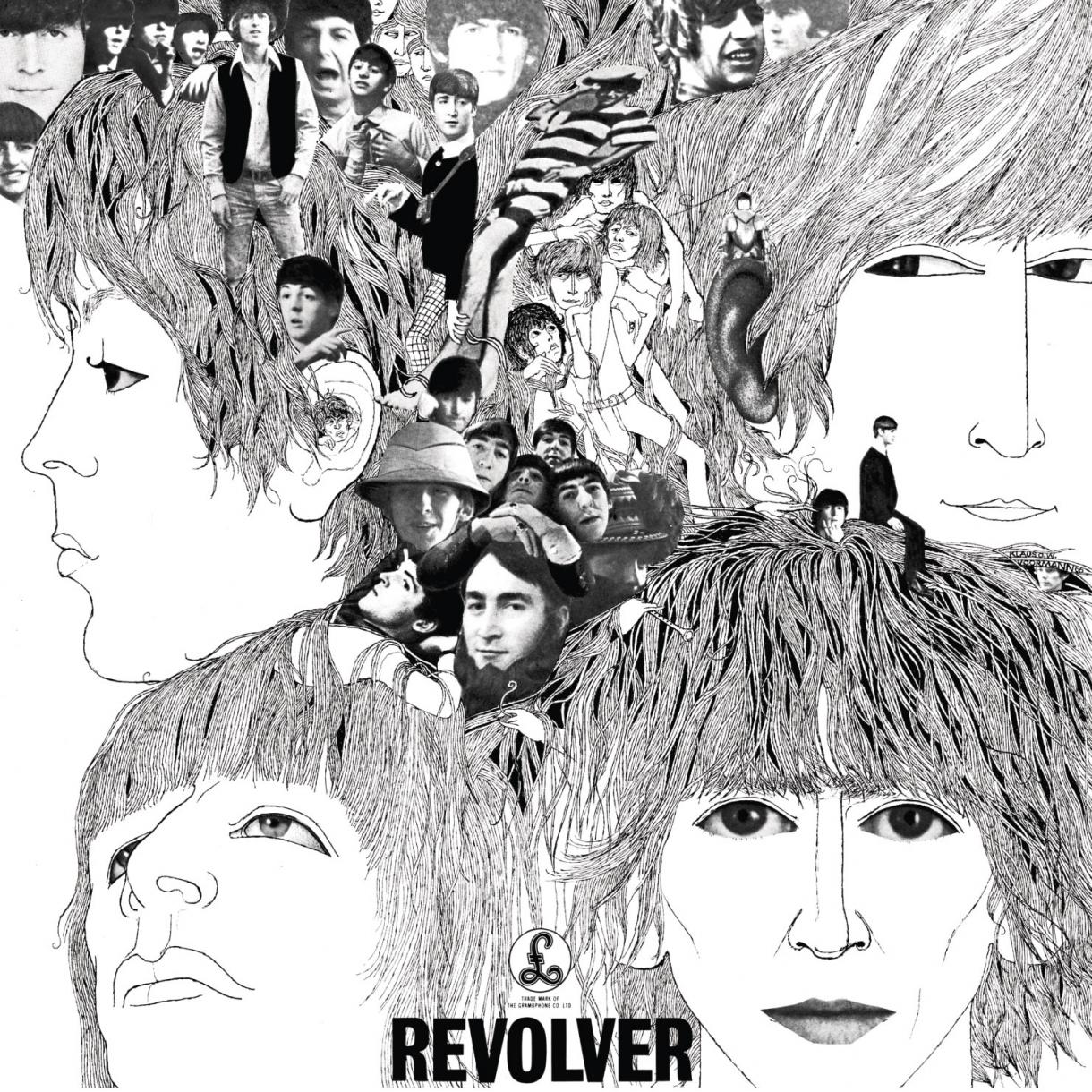The Beatles first began their rapid ascension to pop hyper-stardom as an affable R&B-inspired dance-hall quartet in the idyllic innocence of the early sixties. They could never have anticipated the embers of radical social upheaval waiting to spread like wildfire across the Western world. In just a few short years the Civil Rights movement would be in full-stride, the conflict in Vietnam would trigger unprecedented anti-war protests, the sexual revolution would come of age, and recreational drug use would be in-vogue amongst the middle-classes.
In 1966 – embracing this zeitgeist of counter-cultural rebellion and mistrust of authority – the Beatles released Revolver, a boldly progressive transcendence into the realm of psychedelia and sonic experimentation, a proselytizing for love and freethinking, and arguably their first truly immersive album experience. It marked a further maturing of their already well-honed song-writing craftsmanship, with Paul McCartney drawing inspiration from the pristine and intricate layerings of Brian Wilson’s magnum opus, Pet Sounds, while John Lennon and George Harrison began to pursue a mystical, Eastern, and acid-tainted tangent. If their previous release, the Dylan-
influenced Rubber Soul, saw them knocking at the doors of perception, then Revolver was the Beatles pushing open those doors and peering curiously through the void into the great unknown.
Establishing the album’s un-Beatle-like darker vibe, Harrison’s cynical Taxman is an upbeat tirade against the extortion of their hard-won earnings (they were taxed 19 shillings out of every 20). He spitefully declares: “Now my advice to those who die….declare the pennies on your eyes.” McCartney’s bass riff dominates with resolute percussiveness, morphing into moments of frenetic madness, while his guitar solo (Harrison having graciously stepped aside) is brilliantly scathing. Anti-establishment and proto-punk in essence, Britain’s then PM and leader of the opposition are firmly in the crosshairs, “Don’t ask me what I want it for (ah-ah Mr. Wilson) if you don’t want to pay some more (ah-ah Mr. Heath), cos I’m the taxman..”
The grandiose Eleanor Rigby tells the tale of a humble spinster waiting for her Prince Charming, and a diligent clergyman pastoring a dwindling parish. Both endure a life bereft of meaningful human contact, made even more tragic by the possibility that they might have found solace in each other’s company if only chance and courage had permitted. While thematically weighty, it’s the ingenious accompaniment of the double string quartet – conceptualized by McCartney and scored by producer, George Martin – which really gives Rigby its extraordinary emotional gravitas. As the song crescendos, “Ah, look at all the lonely people,” surely it must be one of the most illustrious heights pop music has ever reached.
Lennon’s superbly whimsical I’m Only Sleeping is an ode to his love of slumbering well-
past morning, leaving all of his troubles outside his bedroom window and blissfully dreaming his day away. On a deeper level, it seems to be a critique of society’s penchant for exhausting precious energy on activities Lennon deems frivolous in the grand scheme of things. “Everybody seems to think I’m lazy, I don’t mind, I think they’re crazy. Running everywhere at such a speed, ‘til they find there’s no need.” he wryly muses. Musically, things feel laid-back and loose, as though everyone in the studio is teetering on the verge of falling asleep themselves. The backwards guitar solo – the first in recorded history – is appropriately surreal and dreamlike. Perhaps it was here that the seeds were planted for the iconic Bed-In for peace, where a messianic Lennon would later declare that people should simply stay in bed rather than go marching off to war?
In the transcendental bliss of Love You To, one could almost imagine being guest of honour at a resplendent Hindu wedding ceremony, where sitars, swarmandels, tablas and tamburas celebrate the unprecedented marriage of Eastern traditionalism and Western contemporary pop music. Feeling more inspired by the vibrant Indian subcontinent than the perpetual overcast grey of the London sky and streets, Harrison’s emerging philosophy is rudimentary – the profound wisdom of Within You Without You still a year away – however his ‘flower power’ mantra is poignant: “Make love all day long. Make love singing songs.” Although perhaps naive and simplistic, it seems a much more preferable alternative to that unrelenting, destructive business of hatred and violence.
Here There And Everywhere is arguably McCartney’s most polished love ballad; sublime, graceful and genteel in approach, his position as the troubadour of the Beatles is beyond dispute. His vocals are deliberately fragile, subtly channeling the vulnerability of falling head-over-heels in love, while the swooning backing harmonies immaculately encapsulate the heavenly serenity – that highest of highs – of a blossoming romance. “There, running my hands through her hair, both of us thinking how good it can be. Someone is speaking but she doesn’t know he’s there.” Poor Eleanor Rigby’s unrealized dream, maybe?
Conceived by McCartney as a children’s singalong with Ringo Starr’s cartoon-like baritone in mind, Yellow Submarine is a cheerful escape from the tiresome burdens of reality; indeed one could almost imagine a snoring Lennon dreaming of the land of submarines in the sedative, I’m Only Sleeping. With the assistance of bells, whistles, chains and gongs, as well as the Rolling Stones’ Mick Jagger and Brian Jones along for the ride, it superbly blends studio wizardry with slapstick frivolity to create one of the Beatles’ most iconic moments.
The diaphanous acid-rock masterpiece, She Said She Said, shimmers with gritty intensity as Lennon explores a part of himself uncomfortable with the idea of facing death, longing instead for a return to his childhood naivety. Harrison’s distorted guitar and aptly subdued bass playing (McCartney being absent due to a heated argument) dances elegantly alongside Lennon’s dirty/sweet vocal lead, while Ringo’s manic beats conjure the LSD-
induced freakout from which the song was inspired. As Lennon reminisces, “When I was a boy, everything was right,” the world brilliantly descends into merry-go-round fantasia, filled with innocent, wide-eyed wonder, before crashing back into the aroused paranoia of a trip gone awry.
Good Day Sunshine is McCartney at his most optimistic; a carefree stroll in the park with his lover at his side, the romance began in Here, There And Everywhere now in full bloom. Vaudevillian-inspired, lively and irrepressible, it gleefully conjures the sunny side of 1960’s idealism, where the ominous clouds of social upheaval are blown far over the horizon, leaving only the glorious hue of a sun-drenched reverie.
The breezy psychedelic jangle and clever duel guitar leads of And Your Bird Can Sing has Lennon reaching out to a woman who is far too content with the shiny, pretty things in her nest to notice his affections. “When your prized possessions start to weigh you down, look in my direction, I’ll be ‘round, I’ll be ‘round,” he optimistically declares. Indeed, by this point the Beatles themselves had started looking beyond the material trappings offered by their unprecedented superstardom, searching instead through meditation and psychedelics for something far rarer and more valuable.
For No One’s sorrowful melodic descent perfectly complements the thematic plunge from “a love that should have lasted years,” into a “love (that) is dead.” It seems that McCartney’s exploration of companionship, from the misery of Eleanor Rigby to the rapturous delights of Here, There And Everywhere and Good Day Sunshine, has now come full circle. The French horn solo is a masterful touch, its forlorn, emotive voice serenely lamenting the loss of what might have been and now never will.
With its ‘swinging 60s’ backbeat, Doctor Robert’s tongue-in-cheek account of an otherwise respectable physician who is all too eager to prescribe taboo remedies, is a welcome tonic after For No One’s melancholia. With a wink and a nudge Lennon advises, “If you’re down he’ll pick you up, Doctor Robert. Take a drink from his special cup, Doctor Robert.”
I Want To Tell You has Harrison’s infectious guitar riff fading in on repeat before giving way to Paul’s subtle – yet incrementally maddening – piano stabs, perfectly complementing Harrison’s muddled state of mind and frustrated verbal impotence, “I want to tell you, my head is filled with things to say. All those words, they seem to slip away.”
Bursting forth with a triumphant, Motown-inspired, five-piece brass overdub, Got To Get You Into My Life is a self-assured epilogue of sorts for McCartney’s exploration of love and loss. This time his lover isn’t a woman who can simply up and leave him, but the humble marijuana leaf – faithful and true, “You didn’t run, you didn’t lie, you knew I wanted just to hold you.”
Harrison’s tamboura/sitar loop drones into existence from the void, Ringo’s hypnotic drum beat and McCartney’s swirling bass materialize from another realm, ghostly bird-like squarks echo through the mountains as Lennon, from-on-high, instructs, “Turn off your mind, relax and float downstream,“ beginning what is arguably the most iconic track in all of psychedelia. Based on acid guru, Timothy Leary’s reinterpretation of the Tibetan Book of the Dead, Tomorrow Never Knows is a mesmerizing voyage through the ineffable mysteries of consciousness and existence. A sonic collage of random otherworldly loops and samples, McCartney’s opening Taxman solo played backwards, and an ingenious recording technique – which had Lennon’s voice filtered through a rotating Leslie speaker – combine to emulate a state of samadhi, (a deeply meditative, even death-like experience.) “Lay down all thoughts, surrender to the void…Yet you may see the meaning of within…Love is all and love is everyone…And ignorance and hate may mourn the dead,” mantras which almost seem to be a foreshadowing of Lennon’s later manifesto described in the Utopian yearnings of Imagine. “So play the game ‘Existence’ to the end…of the beginning…” And so it goes, the wheel of becoming – around and around – just like the spinning vinyl from which the name Revolver was derived.
The moment when I first connected with the Beatles (I was 14) was the first time music actually mattered to me; when music became my sanctuary from the burdens of the world. For me, Revolver is that same yearning to break free, to escape from the shackles we are so often weighed down by – be it loneliness, boredom, conformity, confusion, depression, materialism, or even the fear of death – becoming something more in the process. It seems appropriate that when the time came to record this album, the Beatles had quit touring forever, escaping from the mass-neurosis of Beatlmania to the inner sanctum – and creative freedom – of the studio. It’s my belief then that somewhere within Revolver there’s a place of sanctuary to be found, where the effervescent desires of the human spirit can flourish uninhibited, and we can all truly learn to “listen to the colour of (our) dreams.”
9.5/10
not yet available on spotify


